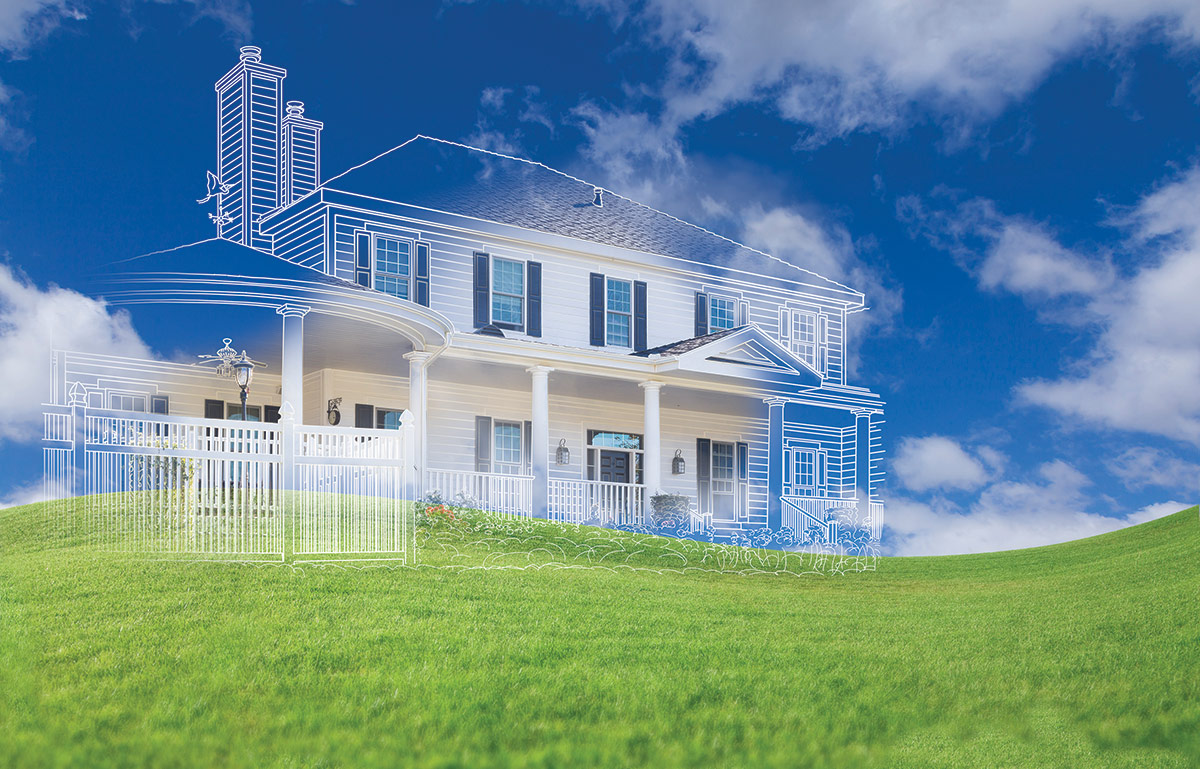
The Kevin Costner film, Field of Dreams, is a favorite movie of sports fans, and of baseball fans, in particular. Based on W. P. Kinsella’s novel, Shoeless Joe, the movie follows the struggles of an Iowa farmer, Ray Kinsella, who tries desperately to wring enough money from his farm to keep the lenders who hold the mortgage on it at bay. He begins to hear a voice saying, “If you build it, he will come.” He wonders if the voice is a dream, a symptom of a psychological problem, or the deliverer of an important message to him.
 Ray’s wife Annie, played admirably in the movie by Amy Madigan, wonders, too. She listens to her husband describe the voice and the other messages it conveys: “Ease his pain”; and “Go the distance”. Then Ray sees a baseball field in the middle of his corn and an apparition of the long-dead Shoeless Joe Jackson, who was a great player from the early twentieth century and who was his father’s favorite player, standing in the middle of the imaginary baseball diamond. He feels called to construct the field, and despite her concerns about her family’s security and her worries that they may soon lose their farm to creditors, Annie accedes to his plan to build the ball field.
Ray’s wife Annie, played admirably in the movie by Amy Madigan, wonders, too. She listens to her husband describe the voice and the other messages it conveys: “Ease his pain”; and “Go the distance”. Then Ray sees a baseball field in the middle of his corn and an apparition of the long-dead Shoeless Joe Jackson, who was a great player from the early twentieth century and who was his father’s favorite player, standing in the middle of the imaginary baseball diamond. He feels called to construct the field, and despite her concerns about her family’s security and her worries that they may soon lose their farm to creditors, Annie accedes to his plan to build the ball field.
Shoeless Joe and his teammates, who were banned from baseball for fixing the 1919 World Series, begin showing up and playing on Ray’s field. They seem to enjoy themselves, but Ray has trouble understanding how he fits into the picture. At a school board meeting, Annie argues against a group of parents who seek to ban books from the school’s library, particularly the books of Terrence Mann, who is a favorite author of her husband’s and hers. Ray then remembers a reference in one of Mann’s books to a baseball player named Kinsella and takes this as a sign that Terrence Mann might have the answer to what Shoeless Joe, the voices, and the field might mean for Ray Kinsella.
Costner’s character travels across the country to Boston and brings Terrence Mann, played wonderfully by the great James Earl Jones, back to his farm. Ray is still unclear about what is in it for him, but Shoeless Joe provides the answer. As the players are wrapping up their game and heading back into the cornfield where they magically disappear each night, he says to Ray, “If you build it, he will come”, and he nods toward a catcher who is removing his gear and staying behind. As Shoeless Joe disappears into the corn, Ray realizes it is the spirit of his father.
Later, still worried about the fate of his family and farm, Ray looks to Terrence Mann for assurance. Mann explains that the field will be an attraction that people will pay to see, and in the best lines of the movie, Mann assures him that, “People will come, Ray. People will most definitely come.” The movie ends with a scene of a road full of cars driving up to the Kinsellas’ cornfield that has become a field of dreams.
But why are we recounting this movie to you? First, it’s a great movie, one of our favorites. If you haven’t seen it, you should. If it’s been a while since you saw it, we recommend that you watch it again. This time, though, think about the voice, and what that iconic line, which we paraphrase here, might mean to your building business.
If you build it, they will come. “They” means your future customers, and the “it” is not a cornfield in Iowa. In this context the “it” is the kind of home your future customers are looking to buy.
It’s easy to get in a rut and stay with a product that has been successful in the past, even after that product is no longer as popular as it once was. The auto industry has experienced this with some regularity. Large cars with big fins were replaced by sportier models with big engines that eventually were replaced by aerodynamic fuel-efficient vehicles. Station wagons gave way to vans that gave way to SUVs, and gas guzzlers are being replaced by hybrids and electric cars. Nearly every industry goes through this, and the homebuilding industry is no exception.
Today’s new home buyers are different from the ones twenty, ten or even five years ago. The Covid pandemic has caused some of the open floor plans of recent years to give way to more private spaces in houses to allow for home offices and quiet places for students to attend class remotely. The new generation of homebuyers (under the age of forty) are placing added emphasis on patios and see the kitchen island, with its ability to serve the multiple purposes of additional workspace, a makeshift breakfast bar, and added storage, as more of a necessity.
Affordability is even more important to today’s new home buyers. In September 2023, the annual median new home price dropped by the largest amount since 2009, with most homes selling in the $150,000 to $499,999 range. Following a stretch of high inflation and with interest rates hovering near a twenty year high, many prospective new home buyers cannot afford to pay as much for a house as they might have paid two or three years ago.
To have more success and to gain an edge on your competition, it is a good idea to study what prospective buyers in your market want and then deliver that product at a price those prospects can afford to pay. If you do that, the people will come. They will most definitely come. And they will buy your houses.
Another way to gain an edge on your competition and to give your homebuyers and you peace of mind is to place an RWC warranty on every home you sell. When you do that, you can be confident that your homebuyers are in good hands and that any construction defect claims they have will be handled with the utmost care and professionalism.
In our more than four decades of home warranty experience RWC has covered more than four million homes. We offer a wide variety of warranty options like our standard ten-year warranty, our Day 1 coverage warranty, our extended appliance and system warranties, and our specialty warranties for remodeling projects, detached garages, and commercial construction. Only RWC has developed and offers its members a customized state warranty that mirrors each state’s statute of repose and accommodates other state specific issues. All RWC warranties provide clear performance standards that help create realistic homeowner expectations and provide a road map to resolving even the stickiest customer complaints.
At RWC, every guarantee our warranties make is backed by Western Pacific Mutual Insurance Company, RRG. Western Pacific has an A- rating from A. M. Best and only insures home warranty and similar new home construction risks, like builders’ general liability, which can be offered through the RWC Insurance Advantage program to RWC members. No other warranty company has an insurer with this kind of strength solely dedicated to covering builders and their homes.
Here’s hoping you continue to dream big and that you choose to go the distance with RWC by your side. Have a great winter!